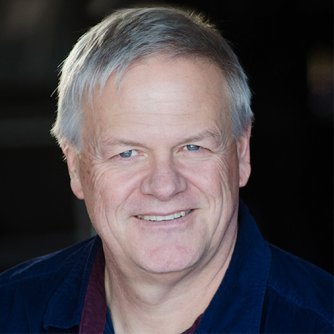
When Jason Crow won his contentious race for Colorado's 6th Congressional District, the victory was part of the state's greater blue wave.
On a national level, though, the Representative-Elect represents another kind of political trend: Veterans.
Crow's congressional class will have the largest amount of military veterans in about a decade. And the U.S. House will have more female veterans than ever before.
The former army ranger talked to Colorado Matters about how being a veteran informs his policy and his priorities as a freshman lawmaker.
Interview Highlights
On what the country loses when there aren't veterans in Congress:
"I do think we have [lost something]. I want to make it clear that I don't think that having served in the military is a litmus test for public office. I mean, we have plenty of fantastic public officials and leaders who've served in different capacities outside of uniform. But I do think it's important that we have a healthy share of representatives and officials that have had that experience.
And you look at the post World War II generation, number one, I believe that the loss of civility and the increased polarization is in part due to the fact that we don't have this common tie anymore. You look at a fellow veteran, and I'm not going to question a fellow veteran's motivations. I might disagree with their policy prescriptions or proposals, but I'm not going to say that person doesn't love America or this country, or question their motivations.
I think the second thing is, veterans are more likely to ask the tough questions that need to be asked when we're employing our men and women in uniform overseas because we understand the grave and sacred responsibility of committing our forces in combat."
On President Trump's decision to send troops to the U.S.-Mexico border:
"I'm appalled by it frankly. This is the use of our men and women in uniform for, in my view, political purposes. I do not see, there's no data that shows me that that's a necessary thing to do to deploy soldiers right now. I think the Trump administration is doing that for political purposes and these are men and women who have been spending the last few years deploying to Iraq, deploying to Afghanistan, being away from their children, being away from their families and they're going to spend, many of them yet another holiday away from their families, living in tents.
I haven't seen any data or any information to suggest that we need soldiers along the border to bolster the border protection service. I just have not seen it. I disagree with it and I'm looking forward to, in January, starting to ask the tough questions and promote hearings to make sure that we're reining in this administration when they do things like this. "
On how he will handle the beleaguered VA hospital on Aurora:
"We have to do a couple of things going forward. Number one, we have to hire the staff, and the personnel to staff that hospital. They have to hire several hundred now medical professionals to make sure that we are actually keeping the appointments that we need to keep, that we have the doctors, the nurses, the physician assistants to service the 460,000 veterans in Colorado and the 700,000 within the region that this hospital serves in the Rocky Mountain region.
That's number one. Number two is we do have to build another building there. That's going to cost another $200 to $400 million potentially and we have to keep the old facility open another three to five years. So making sure the VA has transportation between those two facilities, that they're keeping the quality up at the old facility while we transition to the new one is going to be really important."
Answers have been edited and condensed for clarity.
Full Transcript
Ryan Warner: This is Colorado Matters from CPR News. I'm Ryan Warner. The 2019 freshman class in Congress will be the most diverse and will include more women than any before it. It will also be the largest class of military veterans in about a decade, and one more thing, the US House will have more female veterans than ever. So how might these veterans shape the direction of the country? We're going to ask Congressman elect Jason Crow, from the 6th District, which includes Aurora. Congressman-Elect, welcome to the program. Congressman-Elect Jason Crow: Thank you Ryan. It's good to be here. RW: You're a former Army Ranger, served in Iraq and Afghanistan. Worth mentioning that the Republican you unseated, Mike Coffman, also served. In any case, I understand that veterans will have offices clustered together. Tell me about that. JC: Yeah, we did do that. There was a group of Democratic veterans who got to know each other over the last two years on the campaign trail. Folks like Elissa Slotkin in Michigan, Abigail Spanberger in Virginia, Mikie Sherrill in New Jersey, you know other people who we have a lot of background. We share a lot of values. We became friends. We know each other's families. So we decided to continue that relationship building and cluster our offices together in Washington as well. RW: Now these are folks who have specific military backgrounds, but I also think intelligence and CIA backgrounds as well. JC: Yeah, several were CIA operatives. One was an undersecretary at the State Department. Many are combat veterans. So we all have a national service military, national security background. RW: Okay. Here's the numbers. In the freshman class, 22 of the new members will have either served in the military or worked in intelligence. Interestingly, that doesn't make up for the steady decline over the years in the number of members of Congress who are also veterans. Way back when, military service was almost a defacto requirement for higher office. Do you think the country has lost anything over the years with less of that representation? JC: I do think we have. I want to make it clear that I don't think that having served in the military is a litmus test for public office. I mean, we have plenty of fantastic public officials and leaders who've served in different capacities outside of uniform. But I do think it's important that we have a healthy share of representatives and officials that have had that experience. And you look at the post World War II generation, number one, I believe that the loss of civility and the increased polarization is in part due to the fact that we don't have this common tie anymore. You look at a fellow veteran, and I'm not going to question a fellow veterans motivations. I might disagree with their policy prescriptions or proposals, but I'm not going to say that person doesn't love America or this country, or question their motivations. I think the second thing is, veterans are more likely to ask the tough questions that need to be asked when we're employing our men and women in uniform overseas because we understand the grave and sacred responsibility of committing our forces in combat. RW: Do you have an evidence to say that the overall lower rate of veteran participation in Congress has resulted in more conflict or more engagements or is that just a feeling? JC: That's a feeling of mine. You look at the fact that we're in our 17th year of war in Afghanistan, for example. RW: A place that you know. JC: This is - I've been there twice, fought there in two combat tours. This is now our nation's longest war by a large margin. Our next longest, of course, is Vietnam which is a 10 year war. We've been at war for 17 years. Just in the last week, four more of our service members were killed. We spend $55 billion a year there. It's quickly becoming our forgotten war. People aren't asking the tough questions. We're operating off the same AUMF, that's the Authorization for Use of Military Force, that was passed after 9/11, for all of these conflicts. So it's time for Congress to reinsert itself and reinsert its Constitutional authority and obligation to ask tough questions, to revoke that AUMF, to reauthorize one if we feel it's appropriate, and to hold the administration accountable. RW: What is a tough question you'd like answered specifically about Afghanistan? JC: Yeah, what's the plan there? We don't have a plan. Just on Tuesday General McKenzie, who's the nominee for Central Command commander, that's the regional commander that would have authority over the entire region including, Afghanistan – RW: That theater – JC: Was at a Senate confirmation hearing, and he came right out and said, "We have reached a stalemate in Afghanistan." We have the equivalent of an Army division's worth of soldiers almost permanently stationed there now. We're spending $55 billion a year. We have a very long logistical trail. We have, even more importantly, our young men and women getting killed and wounded on a regular basis there. I'm not aware of a plan. What's the plan? How are we going to withdrawal our forces? How are we going to start winding down that war, but also keep us safe at the same time? RW: I want to push back on this idea. Is it possible that more veterans in Congress actually make the country more hawkish? JC: I don't see that. I look at this current class, for example. I just spent several weeks over the last month with my new, soon to be new, colleagues, right, on both sides of the aisle. There were a lot of Democrats there, more Democrats of course, than Republicans. But I spent the last couple of days spending some time with some of the Republican veterans as well. All of them shared the concern that I just articulated. RW: About Afghanistan, in particular? JC: About Afghanistan. About this state of an ongoing state of war, or permanent state of war, the costs both in terms of lives lost, and wounded soldiers, and the impact that that has on families, but also the real financial costs as well. That's a concern that is shared across both parties. RW: You're listening to Colorado Matters from CPR News. I'm Ryan Warner. We are speaking with Congressman-Elect Jason Crow from Colorado's 6th District. He is a military veteran. There is a fairly large contingent in the freshmen class in Congress for 2019 of military veterans. We're getting a sense of how that shapes policy. You mentioned there are Democrats and Republicans in that cohort, so obviously big differences between and among veterans. But what do you think is the uniting, organizing idea? You've talked about Afghanistan as an issue. What else? Maybe back to that idea of civility. What is it about military service that you think is connected to civility? JC: I think it's this idea of servant leadership. I talked about this when I was on the campaign trail. All of us learned from day one in the military that you are a servant of the people you lead, right. Your job is to protect them, to empower them. That's a sense, that's something that's really missing in Washington right now. And anybody, whether you're in the Navy, the Air Force, the Army, the Marine Corps, learned that very basic principle of servant leadership from the day they put the uniform on. We're all trying to bring that back to Washington to say that we're responsible to people in our communities and our districts, and ultimately we are here to serve them. RW: And that was part of the conversation with even the Republican members of the delegation who had served? JC: Absolutely. I mean they all come from the same firm leadership background and grounding. RW: I'd like to talk about the use of troops at the US Mexico border. They've been deployed to support other agencies to patrol the border and this week the federal government extended their stay through January. As a military veteran, a soon to be member of Congress, how do you view the decision to have troops there? JC: I'm appalled by it frankly. This is the use of our men and women in uniform for, in my view, political purposes. I do not see, there's no data that shows me that that's a necessary thing to do to deploy soldiers right now. I think the Trump administration is doing that for political purposes and these are men and women who have been spending the last few years deploying to Iraq, deploying to Afghanistan, being away from their children, being away from their families and they're going to spend, many of them yet another holiday away from their families, living in tents. Along the border, in the desert for again, political purposes in my view and I- RW: You see absolutely no national security aspect at all in this? JC: I haven't seen any data or any information to suggest that we need soldiers along the border to bolster the border protection service. I just have not seen it. I disagree with it and I'm looking forward to, in January, starting to ask the tough questions and promote hearings to make sure that we're reining in this administration when they do things like this. RW: When you look at veterans from the most recent wars in Iraq and Afghanistan, how do you see their needs as being different from veterans of past wars? I do want to talk to you a bit about the care of those who have served. JC: One of the biggest differences is the survivability on the battle field. Veterans of these current wars, people that are getting wounded on the battle field in Iraq and Afghanistan are surviving their wounds at a much higher rate. That's obviously a very positive thing. RW: But it's often with something like traumatic brain injury. JC: Exactly. Battlefield medicine has advanced. We're keeping our soldiers alive when they get wounded, but they're now returning at higher rates with very severe and substantial injuries. Traumatic brain injury, PTS, and what we do know is that there's an overlap and kind of a relationship between TBI and PTS. RW: We're talking about the relationship between traumatic brain injury and post-traumatic stress. JC: Right and the symptoms look the same, they overlap. So we have to one, kind of retrain our medical professionals within the VA to be able to accurately diagnose it, to treat PTS and TBI and these other very substantial injuries and build the infrastructure within the health administration to support them and their families. RW: That's fascinating. You're saying that the battlefield has evolved. Battlefield medicine has evolved. The medicine when these folks come back home has to evolve in concert. JC: Absolutely. Obviously the great news is these folks are coming home. Again, we're keeping them alive. The casualty rate is going down, but more folks are returning with very severe injuries. RW: This, of course, makes me think of the new VA hospital in Aurora in your district. It's open, but the project was plagued with cost overruns and delays. It's apparently just not big enough. The old hospital remains open to fill that gap. What's the next step in getting the new hospital to the point where it can serve all the veterans it's supposed to? JC: It goes without saying that this hospital has become a monument for mismanagement by the VA and the government. That's absolutely clear. RW: Let me say that your predecessor beat the drum constantly about problems within the VA. What do you think you'll do that might get different results? JC: We have to do a couple of things going forward. Number one, we have to hire the staff, and the personnel to staff that hospital. They have to hire several hundred now medical professionals to make sure that we are actually keeping the appointments that we need to keep, that we have the doctors, the nurses, the physician assistant to service the 460,000 veterans in Colorado and the 700,000 within the region that this hospital serves in the Rocky Mountain region. That's number one. Number two is we do have to build another building there. That's going to cost another $200 to $400 million potentially and we have to keep the old facility open another three to five years. So making sure the VA has transportation between those two facilities, that they're keeping the quality up at the old facility while we transition to the new one is going to be really important. RW: That's a money issue. JC: It is a money issue, and it's a management issue. We have to make sure that we're providing the resources to the VA to do it, but we also have to have the oversight, and we have to have the right people in the job to manage that transition effectively. RW: We will track its progress and yours, Jason Crow. Thanks for being with us. JC: Thank you, Ryan. Really appreciate being here with you. RW: Democrat, Jason Crow, Congressman-Elect for Colorado's 6th Congressional District. Crow will replace Republican Representative Mike Coffman. Both are veterans. The freshman class in the new Congress includes the most number of veterans in about a decade. This is Colorado Matters from CPR News. |









